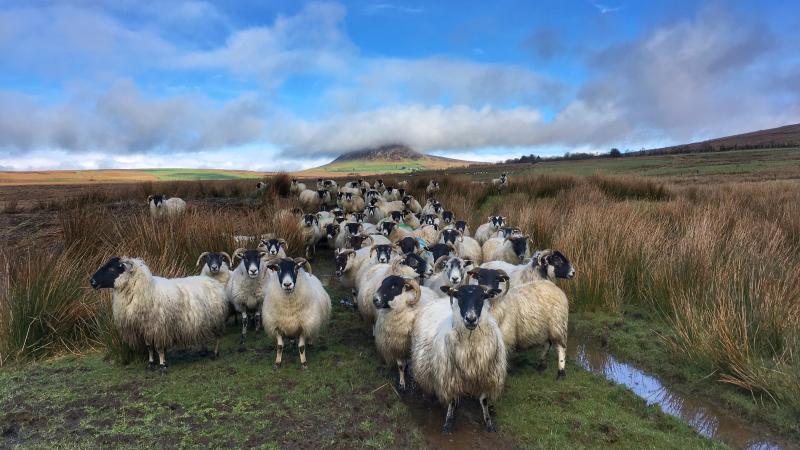New group formed to promote environment friendly farming

A group of farmers have called on the government to create a post-Brexit framework that will help farmers restore aspects of the British environment.
More than 100 farmers have united with a shared vision for the future of British agriculture, based on the environment and wildlife.
The group, the Nature Friendly Farming Network (NFFN), has been launched on Friday (5 January) at the Real Farming Conference in Oxford.
The organisation is calling on the UK and devolved governments to create a post-Brexit framework that will help farmers restore British wildlife, reverse declines in soil quality and help manage the impacts of climate change, at the same time as growing food.
Leaving the EU's Common Agricultural Policy (CAP) necessitates a new approach to British farming policy. The NFFN believes the UK should use this opportunity to help farmers across the UK transition towards a nature friendly future.
Thousands of British farmers already use nature friendly farming practices, but NFFN says that the scale of the decline in wildlife and soil quality and the challenges presented by climate change mean that this work needs to be scaled up rapidly with strong policy support.
Political voice
The NFFN aims to provide a political voice for farmers who are committed to managing their land for wildlife and public service, as well as growing and providing food.
The group says that post-Brexit, agricultural policies need to help all British farmers to produce high quality food at the same time as helping soil, landscapes and wildlife recover and flourish.
Among other things, the NFFN says that farming payments need to be continued and redirected towards mainstreaming nature friendly farming across the UK.
On Thursday (4 January), Defra Secretary Michael Gove announced the CAP will be replaced with a new environment-focused subsidy system post-Brexit.
The NFFN believe that a more nature friendly approach will be key to the long-term survival and success of British farming.
'Evolve and thrive'
The chair of NFFN, Martin Lines, who runs an arable family farm in Cambridgeshire, says Brexit presents a "once in a generation opportunity" to create a new farming policy that will help farms "evolve and thrive".
Mr Lines added: "We can use this opportunity to create a long-term, stable policy framework that will drive a mainstream shift towards a sustainable, productive, nature-friendly future for British farming as well as protecting the landscape across the UK."
The NFFN says Britain needs to change its approach to agriculture, because existing farm practices often rely on the "heavy use" of chemical pesticides and herbicides which have a "profound impact" on biodiversity and public health.
The group says industrialised farming is responsible for 2.9 million tonnes of topsoil lost each year in the UK alone, and states that farm birds have declined by 54% since 1970.
'Public goods'
Rob Macklin, Head of Farming at the National Trust, says: "Many of the things we need from the countryside – wildlife, healthy soils, clean water, flood protection and carbon storage are ‘public goods’ that fall outside conventional markets.
"Post-Brexit, we need a policy and subsidy framework that rewards farmers to conserve natural resources alongside production. We want Government to offer farmers a joined-up package of support to benefit nature-friendly farming across the UK."
NFFN will launch a policy ask to recognise that agriculture across the UK needs to be profitable and sustainable, and that farmers should receive payments for undertaking environmental and nature friendly activities.








